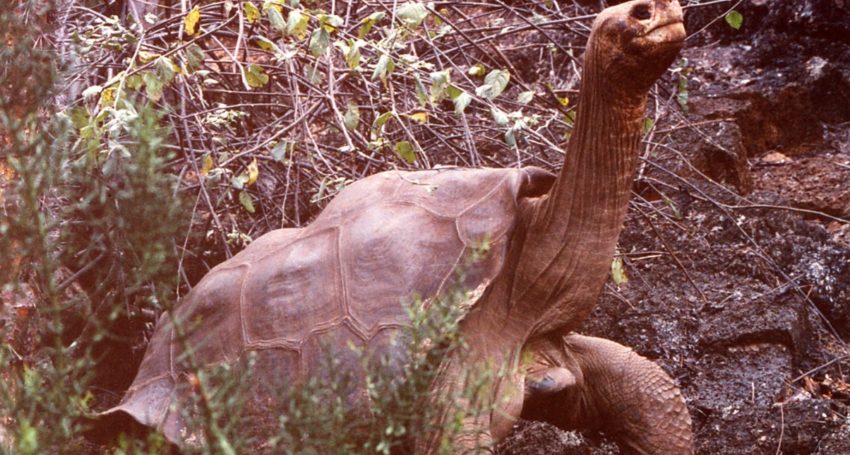Genes from a giant tortoise may hold key to longer life
Education
New research on genome sequencing of a giant tortoise reveal insights to the species’ longevity and cancer resistant abilities.

Sign up to receive notifications about new stories in this category.
Thank you for subscribing to story notifications.

An international research team lead by Yale University studied the DNA of Lonesome George, the sole remaining Pinta island tortoise who died in captivity in 2012.
The 15-year study on George and other tortoises of the Galapagos was published this week, revealing key genes associated with the species’ ability to live up to 200 years and fight cancer.
Co-author Professor Luciano Beheregaray from Flinders University said the breakthrough findings on Giant Tortoise genetics could translate to benefits in humans.
“We found several variations in genes that are found in the Giant tortoise, but also exist in other vertebrate species such as humans, they could be related to longer life and fighting cancer,” said Professor Beheregaray.
“Giant tortoises are amongst the longest living animals and therefore must have evolved mechanisms for reducing their risk of developing cancer. Because of that they provide an excellent model to study longevity and age-related diseases.”
Increased cell accumulation associated with living longer is strongly linked to increased cancer risk.
Beheregaray said the giant tortoise is a unique exception to this rule, the low cancer rates of the species indicating an underlying mechanism of protection.
“We share well over 90% of the genome with tortoises, but it is the differences that make the comparison very interesting, “ said Beheregaray.
Researchers from 12 institutions participated in the project, including the University of Oviedo in Spain, the Galapagos Conservancy, and Flinders University in South Australia.
The findings of the study were published in the journal Nature Ecology & Evolution, providing breakthrough findings for ageing research in humans.
Researcher Carlos Lopez-Otin from the University of Oviedo in Spain said the gene variations have not previously been linked to ageing, providing insight to the longevity of the tortoises.
“We had previously described nine hallmarks of aging, and after studying 500 genes on the basis of this classification, we found interesting variants potentially affecting six of those hallmarks in giant tortoises, opening new lines for aging research,” Lopez-Otin said.
Beheregaray said the study unveiled duplications of certain genes in the tortoise that exist only as a single copy in humans.
“We know gene duplication impacts the function of the gene, it may be that those duplications are indeed impacting on the ability of the giant tortoise to live a long life,” said Beheregaray.
While the findings point to evolutionary strategies linked to increased lifespan and age-related diseases, Beheregaray said further studies are needed to determine if these features are indeed associated with suppressing cancer.
Jump to next article



